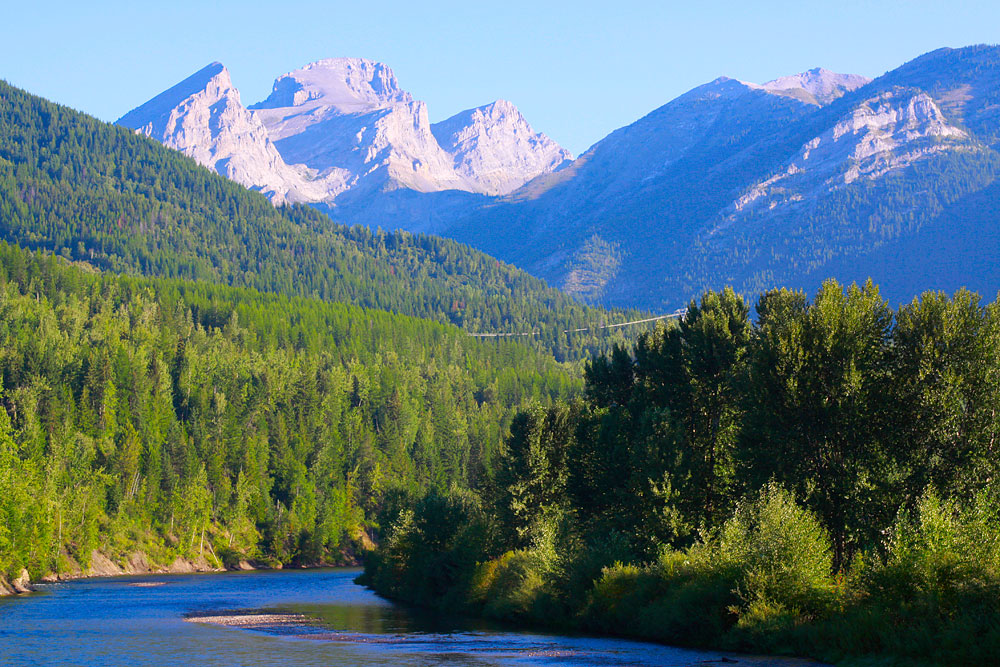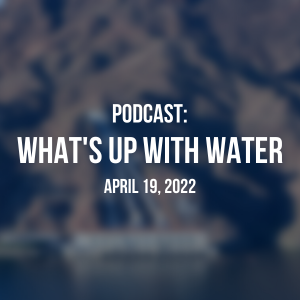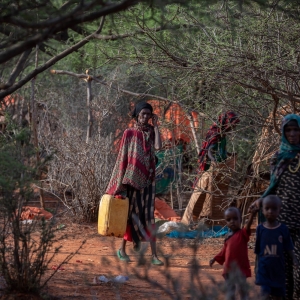The Stream, April 20, 2022: Conservation Groups Say a Canadian Utility Company Failed to Rebuilt Habitats They Destroyed

The Elk River. Fernie, British Columbia, Canada. Photo © waferboard / Flickr
YOUR GLOBAL RUNDOWN
- Conservation groups in Canada claim an electric utility is failing to appropriately restore habitats destroyed by hydroelectric dam projects.
- Floods decimate coastal South Africa.
- War destroys water infrastructure in Ukraine, leaving millions without access to drinking water.
- Nebraska officials move forward with a controversial and expensive water diversion project.
Water shortages in Iraq could destroy ancient cultural sites.
“Imagine the next 10 years, most of our sites will be under saline water.”
– Jaafar Jotheri, a professor of archaeology at Al-Qadisiyah University.
Water shortages in Iraq are leading to increased salt concentrations and sandstorms, eroding ancient cultural sites. The shortages, caused by years of mismanagement and overextraction, are being exacerbated by climate change. Rising salt concentrations in soil and waterways, paired with more frequent sandstorms, are attacking ancient buildings and monuments. Many experts fear the loss of these sites may lead to gaps in human knowledge of ancient civilizations like the Babylonian Empire.
In Recent Water News
What’s Up With Water – April 19, 2022 – This week’s episode of What’s Up With Water covers water outages in Ukraine, water rationing in Chile’s largest city and the western United States, and the biggest environmental concerns among Americans.
Conservation Groups Claim Canadian Electric Utility is Misusing Funds Meant for Habitat Restoration
Conservation groups say B.C. Hydro, a Canadian electric utility, isn’t fulfilling obligations to restore habitats destroyed by hydroelectric dam projects. The B.C. Wildlife Federation and University of Victoria Environmental Law Centre filed a brief claiming money for habitat restoration instead was used for ordinary government functions. The groups are calling on Canada’s auditor general to investigate the usage of the funds.
This Week’s Top Water Stories, Told In Numbers
$67 MILLION
Floods in South Africa have killed more than 400 people and displaced nearly 40,000 people. The federal government announced this week it will allocate $67 million to flood relief for those affected. Troops have been deployed across the KwaZulu-Natal province to continue search and rescue efforts and deliver essential supplies including food and water.
South Africa’s climate future: The floods have again spurred conversations around climate adaptation in South Africa, Reuters reports. KwaZulu-Natal’s largest city, Durban, released its Climate Action Plan in 2020 outlining strategies to create sustainable energy sources, conserve water, and cut flood risk. Climate activists, however, say there is little evidence that the plan has been implemented.
1.4 MILLION
More than a million people in eastern Ukraine are without running water as war continues to wreak havoc on the nation’s residents. At least 20 incidents of damage to water infrastructure have been recorded in the region since fighting began in late February. Humanitarian organizations have continued pleas for Ukrainian and Russian forces to avoid attacks in on critical infrastructure. According to a press release from UNICEF, over 6 million people across the entire nation are struggling to access drinking water.
On the Radar
Nebraska will move forward with a controversial plan to build a canal in Colorado in order to divert water. Nebraska Gov. Pete Ricketts proposed the project amid fears about Colorado’s increased water use. Colorado officials have questioned if the $500 million canal, but Ricketts maintains the project is necessary to preserve water rights for his state.
More Water News
As Ethiopia prepares for the third filling of the controversial Grand Ethiopian Renaissance Dam, Egypt is expressing support and humanitarian aid to Sudan.
The nonprofit Global Citizen launched several billion-dollar funds focused on meeting UN Sustainable Development Goals, including access to clean water, sanitation, and hygiene globally.
Jane is a Communications Associate for Circle of Blue. She writes The Stream and has covered domestic and international water issues for Circle of Blue. She is a recent graduate of Grand Valley State University, where she studied Multimedia Journalism and Women, Gender and Sexuality Studies. During her time at Grand Valley, she was the host of the Community Service Learning Center podcast Be the Change. Currently based in Grand Rapids, Michigan, Jane enjoys listening to music, reading and spending time outdoors.







Leave a Reply
Want to join the discussion?Feel free to contribute!